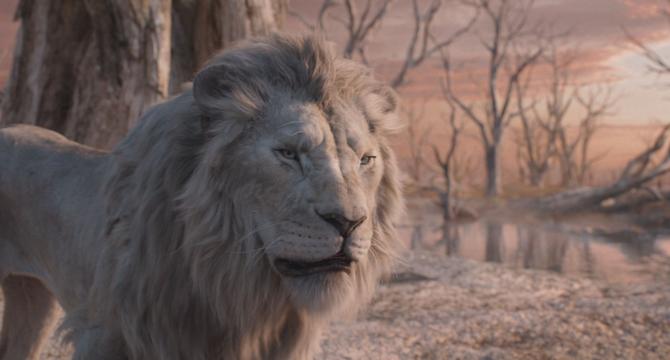Polygon
2d
259

Image Credit: Polygon
Mufasa’s clumsy number ‘Bye Bye’ shows exactly how Disney villain songs went wrong
- Disney has only produced a handful of movies with actual villains over the last 15 years and it has meant a lack of animated villains. Villain songs are memorable because they allow the audience to see all of their glorious viciousness. Unfortunately, “Bye Bye” by the white lion antagonist Kiros in Mufasa: The Lion King is a pitiful machination of a villain number that manages to make the villain less threatening. Since the company’s first feature-film villain song, Pinocchio’s “Hi-Diddle-Dee-Dee,” providing a musical showcase for a film’s big bad has been one of the best expressions of Disney’s musical heritage. During the Disney Renaissance (1989-1999), they became big, dynamically choreographed Broadway-style numbers. Unfortunately though, “Bye Bye” is a valuable reminder of how great Disney villain songs used to be.
- All the great villain songs firmly establish antagonists’ characters and display what makes them truly diabolical, but we learn virtually nothing about Kiros through “Bye Bye.” Since “Bye Bye” tells us nothing about Kiros or what he’s capable of, there’s no reason to root against him, or even care about him. These numbers deserve more. They’re a huge reason why classic Disney villains are so popular and memorable. If Disney’s songwriters aren’t interested in what makes villain songs such a wonderful part of the studio’s canon, perhaps we’re better off without them after all.
- Between 2000 and 2023, Disney only gave us five villain songs and just three of them since 2010 — “Mother Knows Best” in Tangled, “The Backson Song” in Winnie the Pooh, and “Shiny” in Moana. Disney’s Wish gave us our first true villain song in 13 years with “This Is the Thanks I Get?!”. Moana 2’s fiery “Get Lost” is styled and presented as a villain song, although it is not a true villain song as Matangi reveals herself as Moana’s ally.
- The snarly “bye-bye”s seem as if they’re meant to echo Scar’s snark, but his 1994 number is full of genuine malice, as well as haunting imagery deliberately recalling Germany’s Third Reich. There’s no matching visual creativity or daring in the screen staging of “Bye Bye,” which reduces the number to a group of lions circling and jumping around. Villain songs have been a vital opportunity for Disney storytellers to push the limits and breach taboo subjects.
- During the Disney Renaissance they became big, dynamically choreographed Broadway-style numbers. Although great villain songs help us understand what makes a villain tick, we learn virtually nothing about Kiros through “Bye Bye.” The obnoxious, childish threat of making Mufasa “go bye-bye” feels more like a petulant aside than a genuine intention.
- Lin-Manuel Miranda’s song for Mufasa: The Lion King makes the mistake of centering “Bye Bye” not on the villain, but instead on Mufasa. Unfortunately, “Bye Bye” (much like “This Is the Thanks I Get?!”) is a pitiful machination of a villain number that manages to make the villain less threatening.
- Disney villain songs have become a box-ticking exercise, added more out of a sense of obligation than out of inspiration. Mufasa: The Lion King also features a full villain song: “Bye Bye,” sung by Mads Mikkelsen as white lion antagonist Kiros. But hope is not lost: The villain song is on the rise again. If Disney’s songwriters aren’t interested in what makes villain songs such a wonderful part of the studio’s canon, perhaps we’re better off without them after all.
- If Disney has no more interest in villain songs, then it would be a shame as these songs help break up the parades of protagonist I-want songs and comic relief songs, and serve as playful excursions into kid-safe nastiness in creative ways. Villain songs are an expression of Disney’s musical heritage and should continue to be a part of the Disney franchise.
- There’s no one way to have a successful villain song, but all the great ones firmly establish antagonists’ characters and display what makes them truly diabolical. For Disney, the villain song has been a way of breaking up the formulaic constraints of a classic hero story and cheered audiences by giving them something different.
- Since the company’s first feature-film villain song, Pinocchio’s “Hi-Diddle-Dee-Dee,” providing a musical showcase for a film’s big bad has been one of the best expressions of Disney’s musical heritage. These numbers deserve more, however it seems Disney misinterprets the importance of villain songs and tends to overlook them. Kiros, from Mufasa: The Lion King, prompts the question, has Disney given up on quality villain songs?
- It’s fair to say that “Bye Bye” is a valuable reminder of how great Disney villain songs used to be. The poignant Pinocchio’s “Hi-Diddle-Dee-Dee” lyrics are proof if any were needed that songwriters and directors could use villain songs to make their antagonists memorable and relevant to the story. If Disney refuses to invest in quality villain songs, perhaps it’s better off without them?
Read Full Article
15 Likes
For uninterrupted reading, download the app